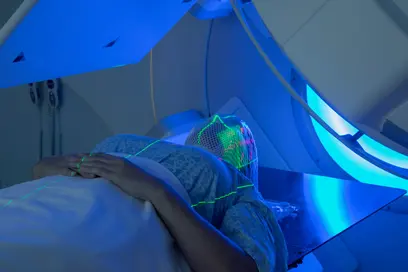Genes are team players. Changes in a genetic make-up often have an effect on the activity of a large number of other genes - with far-reaching consequences: “The interplay of very many gene activities determines the identity of a cell and ultimately decides whether, for example, a nerve cell or a white blood cell is formed - with largely identical genetic material,“ explains Michael Boutros from the German Cancer Research Center (DKFZ).
Wiring diagrams, which map the entirety of such genetic dependencies, were initially created for protozoa such as yeast and later also for cells of higher organisms in the culture dish. The challenge now is to extend such analyses to the complicated tissues of multicellular organisms, which usually consist of different cell types, differentiate in the course of life and have to react to changing environmental conditions.
With “DECODE“, researchers from three Heidelberg institutions now want to prove that such analyses are possible. The European Research Council (ERC) is funding this ambitious project with a “Synergy Grant“. In addition to Boutros, Wolfgang Huber from the European Molecular Biology Laboratory (EMBL), Jan Lohmann from the University of Heidelberg and Oliver Stegle from the DKFZ and EMBL are involved. The strength of the DECODE team is that it combines excellent expertise in single cell analysis and genome engineering with top-class bioinformatics.
The team will initially focus on two model systems: the intestine of the fruit fly Drosophila and the root tip of arabidopsis - the botanists' most popular research object. Using the CRISPR-Cas gene scissors, the researchers hope to switch off around 3000 selected genes, either individually or in pairs - and observe what happens: “Today we are able to analyze the RNA molecules at the level of individual cells. This enables us to recognize which changes in the activity of all genes our respective intervention has triggered,“ explains Michael Boutros.
The researchers hope to understand how the genetic circuit diagrams change in the course of the development and differentiation of a tissue or how they react to an external stimulus such as a toxin. “Drosophila and Arabidopsis have already been studied in detail and have compact genomes, making them particularly suitable for us. Our project is also paving the way for comparable studies on human cells,“ said Oliver Stegle. “If we understand disorders in the genetic circuit diagram of cells that occur in inflammations or cancer, for example, this could open up completely new possibilities for the development of new therapeutics.
With its “Synergy Grants“, the ERC supports small teams of scientists working together to solve complex research problems, bringing together different techniques and skills across disciplines. The DECODE team won a highly competitive bidding process, with only one out of ten project proposals selected. “DECODE“ will now receive €10.6 million over six years.



